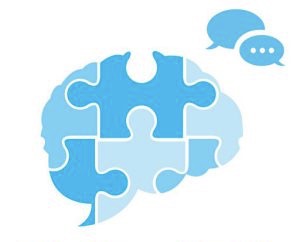What is Psychosis?
Psychosis is a severe mental illness, characterised by a loss of contact with the reality and profound disruption of the relationships with other people, which results in social maladaptation. The psychoses lead to a declination of personality. Specially distorted reflection of the effects of the reality. There is a change in the relation of the patient and the surroundings due to the disease process.
The psychosis is a brain issue, the onset, and course of the disease is caused by genetic, biochemical and environmental factors. Psychosis is associated with specific pathomorphological changes in the body. This issue changes the anatomical structure and functionalities of the neuro-cerebral substance.
The disorders affect perception and thinking, memory and imagination, feelings and will, affections and relationships and consciousness and personality. The person with psychosis does not know about his/her disorder and is isolated from the outside world, creating an own one.
Often there is a delusional activity which characteristic features are the lack of self-criticism, the presence of different judgments, thinking, which is contrary to reality and logic, profound mental alienation of the personality and leading to the impossibility of social life.
What is Neurosis?
The neurosis is a purely functional mental disorder without organic reason, a group of “borderline” functional neuro-psychical disorders that manifest themselves in specific clinical phenomena in the absence of psychical phenomena.
The basis of neuroses is an internal conflict caused by an insoluble contradiction in the attitude of a person to reality. Sources of such contradiction are found in the sphere of human relationships and conflicts, in the social space, and in the wrong upbringing.
More important features of the neuroses are the mental and physical disorganization, inadequate response and inability to properly react to different situations, emotional liability, constant internal tension and anxiety, agitation, discomfort, feeling of inadequacy, aggression, sleep disorders, sexual disorders.
Difference Between Psychosis and Neurosis:
1. Definitions of Psychosis and Neurosis
Psychosis: The psychosis is a severe mental illness, characterized by a loss of contact with the reality and a deep disruption of the relationships with other people, causing social disadaptation.
Neurosis: A Neurosis is a group of “borderline” functional neuro-psychical disorders that manifest themselves in specific clinical phenomena in the absence of psychical phenomena.
2. Types of Psychosis and Neurosis
Psychosis: Types of psychoses are schizophrenia, bipolar affective disorder; delusions: paranoia, chronic hallucinatory psychosis, paraphrenia; epilepsy; senile or pre-senile dementia, etc.
Neurosis: The neuroses include neurasthenia, fearful neurosis, hysteria, neuroses of compulsive conditions /phobic disorders/, etc.
3. Personality Changes of Psychosis and Neurosis
Psychosis: The psychoses lead to the change of the whole personality of the person in whom it appears.
Neurosis: The neuroses are purely functional diseases and do not affect the whole personality.
4. Contact with Reality in Psychosis vs. Neurosis
Psychosis: The contact with reality is totally lost or changed.
Neurosis: The contact with reality is partially intact, though its value can be changed.
5. Awareness of the Own Condition in Psychosis vs. Neurosis
Psychosis: The person with psychosis does not realize his/her disorder.
Neurosis: The person with neurosis is aware of his/her personal problems and difficulties.
6. Language and Communication in Psychosis and Neurosis
Psychosis: The thought and speech processes are disorganized, incoherent, and irrational.
Neurosis: The neurosis does not affect language, communication, and thought processes
7. Hallucination and Delusion in Psychosis and Neurosis
Psychosis: Hallucination and delusion are marked symptoms.
Neurosis: In general no delusion and hallucination occur.
8. Organic Changes in of Psychosis and Neurosis
Psychosis: The psychoses are associated with certain pathomorphological and pathofunctional changes in the body, the disease changes the anatomical structure and functionalities of the neuro-cerebral substance.
Neurosis: The neurosis is a purely functional mental disorder without organic reason.
9. Aetiology of Psychosis and Neurosis
Psychosis: The factors that can cause psychosis are genetic, biochemical, and environmental.
Neurosis: The factors that can cause neurosis are biological, socio-psychic climate, psychological, pedagogical, and socio-economic.
10. General behaviour in Psychosis and Neurosis
Psychosis: The psychotics cannot manage themselves. They often tend to commit suicide and need hospitalization or equivalent care at home.
Neurosis: The neurotics can manage themselves and are rarely suicidal. Hospitalization is not necessary.
11. Treatment procedure in Psychosis and Neurosis
Psychosis: The treatment of psychosis includes antipsychotic medicines, psychological therapy, social support.
Neurosis: The treatment of neurosis is mainly psychological in the form of moral and social support, medicines can also be prescribed.


Interesting article. Thank you for this.
LikeLiked by 1 person
Actually it is much simpler; In neurosis you annoy yourself; in psychosis you annoy other people. These are social phenomena, not like physical illnesses
LikeLiked by 2 people
I think both will affect the people around you
LikeLike
I have psychosis and can relate to all you have written, but the person is not lost forever. I am only on one anti psychotic now after being on so many all at once and I can recognise my symptoms when I’m fading out of reality. I then see my psychiatrist and Councellor. It can be managed. I was in a severe state where my psychosis was so bad I was hospitalised, sedated out of it for 2 weeks and more to recover, mine was border Schizophrenia. I was not born this way, I became it at the age of 26 years of age. Although now looking back I recognise some signs in my adolescent yrs. please follow my blog. http://www.thereader.life thank you Amelia
LikeLiked by 1 person